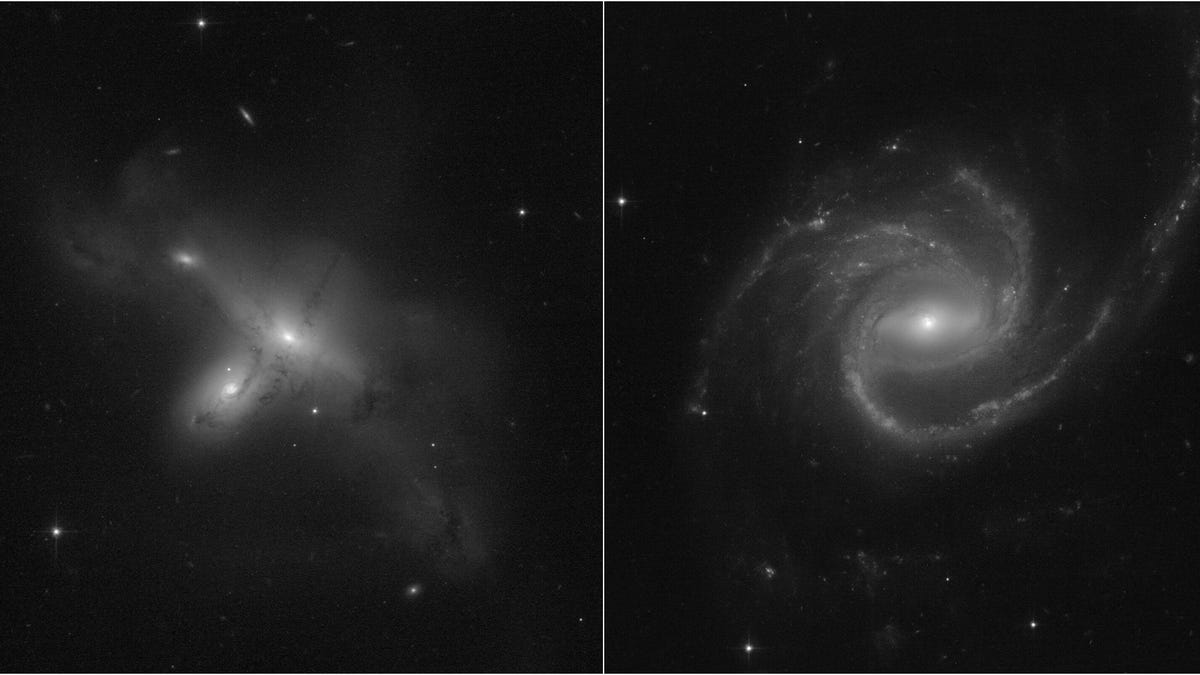NASA celebrates Hubble's return to science with gorgeous galaxy images
New views of oddball galaxies show Hubble is feeling better after a worrisome glitch knocked it out for a month.
Space aficionados have been following the saga of the Hubble Space Telescope's worrying technical glitch. It had a happy ending as NASA's recovery efforts paid off, and now we have visual proof of Hubble's health in the form of some lovely new galaxy images.
NASA released the images on Monday. They show some of the telescope's science targets from over the weekend as it returned to service after over a month in safe mode. The space agency switched the 31-year-old telescope over to backup hardware in order the save the mission.
The galaxies don't have catchy names. The diffuse-looking ARP-MADORE2115-273 is actually a pair of galaxies interacting with each other. The unusual spiral galaxy ARP-MADORE0002-503 sports a trio of extended arms reaching out from its center.
The Space Telescope Science Institute (STScI), which runs Hubble's science operations, said the images are part of a program designed to "to survey oddball galaxies scattered across the sky."
Hubble may be aging, but its future looks bright. STScI Director Kenneth Sembach said, "Hubble is in good hands. The Hubble team has once again shown its resiliency and prowess in addressing the inevitable anomalies that arise from operating the world's most famous telescope in the harshness of space."
Follow CNET's 2021 Space Calendar to stay up to date with all the latest space news this year. You can even add it to your own Google Calendar.


